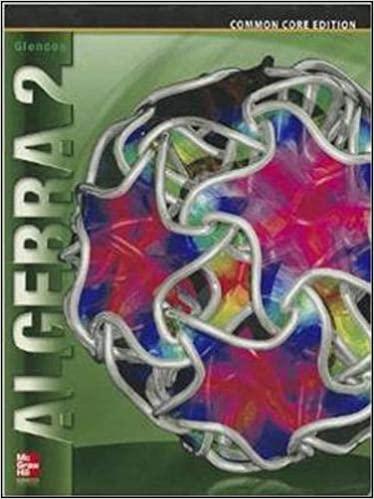Question
A researcher claims that the amounts of acetaminophen in a certain brand of cold tablets have a mean different from the 600 mg claimed by
A researcher claims that the amounts of acetaminophen in a certain brand of cold tablets have a mean different from the 600 mg claimed by the manufacturer. Test this claim at the 0.02 level of significance. The mean acetaminophen content for a random sample ofn= 41 tablets is 603.3 mg. Assume that the population standard deviation is 4.9 mg.
a)
Since the test statistic is greater than the criticalz,there's sufficient evidence to accept the null hypothesis and to support the claim that the mean content of acetaminophen is 600 mg.
b)
Since the test statistic is greater than the criticalz,there's sufficient evidence to reject the null hypothesis and to support the claim that the mean content of acetaminophen is not 600 mg.
c)
Since the test statistic is less than the criticalz,there's sufficient evidence to reject the null hypothesis and to support the claim that the mean content of acetaminophen is not 600 mg.
d)
Since the test statistic is greater than the criticalz,there's insufficient evidence to reject the null hypothesis and to support the claim that the mean content of acetaminophen is not 600 mg.
A manufacturer claims that the mean amount of juice in its 16-ounce bottles is 16.1 ounces. A consumer advocacy group wants to perform a hypothesis test to determine whether the mean amount is actually less than this. The mean volume of juice for a random sample of 70 bottles was 15.94 ounces. Do the data provide sufficient evidence to conclude that the mean amount of juice for all 16-ounce bottles, , is less than 16.1 ounces? Perform the appropriate hypothesis test using a significance level of0.10. Assume thats= 0.9 ounces.
a)
Thezof-1.49 provides sufficient evidence to conclude that the mean amount of juice is less than 16.1 oz.
b)
Thezof-1.49 does not provide sufficient evidence to conclude that the mean amount of juice is less than 16.1 oz.
c)
Thezof-0.1778 doesn't provide sufficient evidence to conclude that the mean amount of juice is less than 16.1 oz.
d)
Thezof-0.1778 provides sufficient evidence to conclude that the mean amount of juice is less than 16.1 oz.
The owner of a football team claims that the average attendance at home games is over 3000, and he is therefore justified in moving the team to a city with a larger stadium. Assuming that a hypothesis test of the claim has been conducted and that the conclusion is failure to reject the null hypothesis, state the conclusion in nontechnical terms.
a)
There's sufficient evidence to support the claim that the mean attendance is greater than 3000.
b)
There's sufficient evidence to support the claim that the mean attendance is equal to 3000.
c)
There's not sufficient evidence to support the claim that the mean attendance is greater than 3000.
d)
There's not sufficient evidence to support the claim that the mean attendance is less than 3000.
A psychologist claims that more than 29 percent of the professional population suffers from problems due to extreme shyness. Assuming that a hypothesis test of the claim has been conducted and that the conclusion is failure to reject the null hypothesis, state the conclusion in non-technical terms.
a)
There's sufficient evidence to support the claim that the true proportion is less than 29 percent.
b)
There's not sufficient evidence to support the claim that the true proportion is greater than 29 percent.
c)
There's sufficient evidence to support the claim that the true proportion is equal to 29 percent.
d)
There's sufficient evidence to support the claim that the true proportion is greater than 29 percent.
A consumer advocacy group claims that the mean amount of juice in a 16-ounce bottled drink is not 16 ounces, as stated by the bottler. Determine the conclusion of the hypothesis test assuming that the results of the sampling lead to rejection of the null hypothesis.
a)
Conclusion: Support the claim that the mean is equal to 16 ounces.
b)
Conclusion: Support the claim that the mean is greater than 16 ounces.
c)
Conclusion: Support the claim that the mean isn't equal to 16 ounces.
d)
Conclusion: Support the claim that the mean is less than 16 ounces.
Step by Step Solution
There are 3 Steps involved in it
Step: 1

Get Instant Access to Expert-Tailored Solutions
See step-by-step solutions with expert insights and AI powered tools for academic success
Step: 2

Step: 3

Ace Your Homework with AI
Get the answers you need in no time with our AI-driven, step-by-step assistance
Get Started


